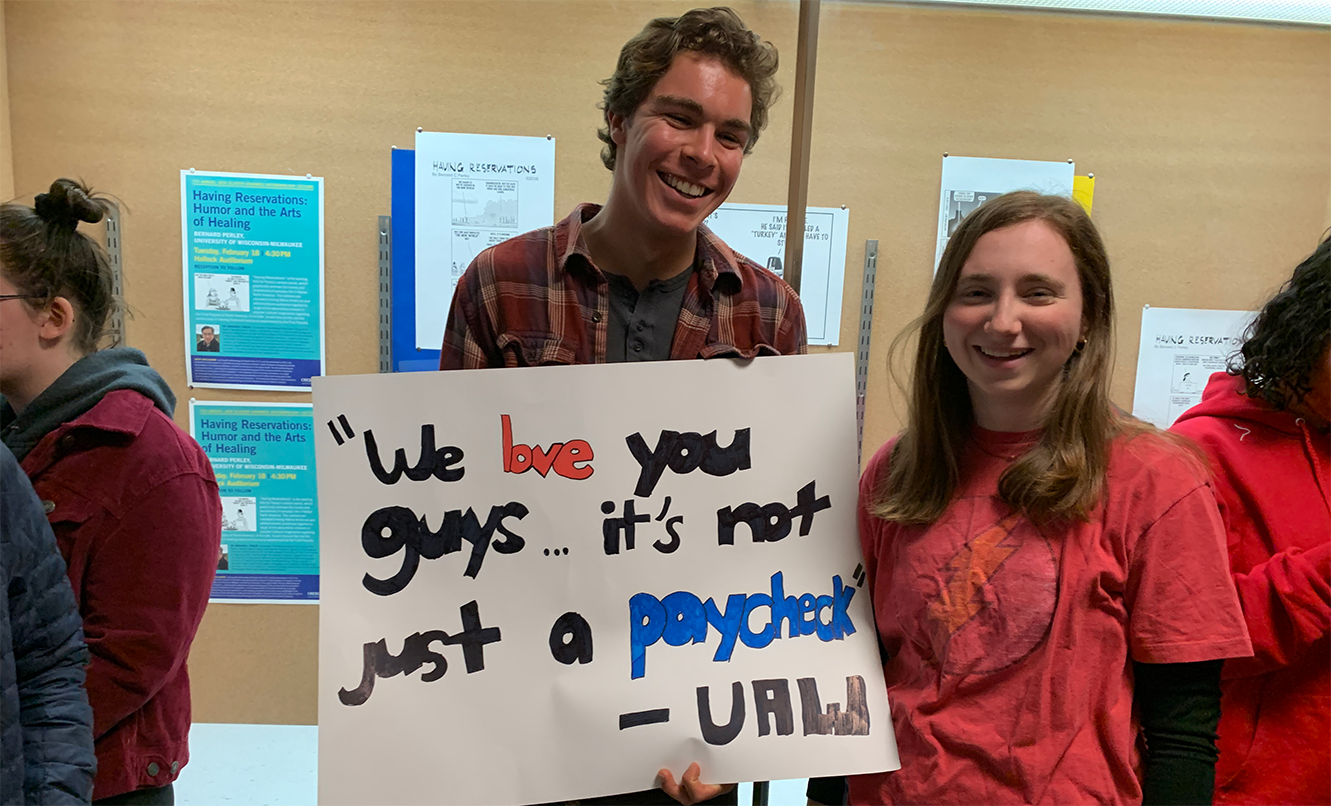A moral imperative. A thing you have to do because it’s right.
Employers don’t always do things because they’re right, but always do things because they make money. When an employer cuts wages, it’s because they’ll have more money to reduce their debts or line their pockets — the profit motive. Every defense of capitalism has to claim that the profit motive is a moral imperative — what’s good for employers must, by proxy, be good for society. It’s not hard to see cases where this is demonstrably untrue: for example, low wages, while good for employers, keep the majority of workers below a livable allowance.
Oberlin College is, unlike most employers, a non-profit organization. They do not generate profits for shareholders — rather, OC has just shy of a billion dollars in their endowment fund. Strictly speaking, nobody individually reaps the financial revenue that Oberlin generates in order to operate. The six-figure salaries of deans and administrators, while worthy of scrutiny, are not related to how much revenue the College brings in at any given time.
Yet, Oberlin College is acting like a for-profit business. In treating its largely unionized labor force, and other integral parts of the College, as financial liabilities, it is applying the same logic as private-industry profiteers — forcing dramatic cuts and recklessly destabilizing workers’ lives is necessary, in order to keep the College’s finances sustainable.
When the College, or any employer, retains its custodial and dining staff for labor, it asks them to essentially rent their bodies to its money-making enterprise for an hourly fee, a compensatory wage. Working people’s bodies can only work so much, take so much strain, stand on their feet so long — if employers seek labor, they must provide sufficient compensation for this work. At minimum, sufficient compensation is enough to live a financially sustainable life. This is the moral imperative upon employers.
Further, staff must be empowered to place a price on their labor that makes their participation, their expenditure of energy, time, and highly valuable work. This price must include health-care benefits, paid time off, vacation time, and a living wage — in Ohio, a living wage is over $45,000 a year, or at least $22 an hour for full-time employees.
UAW Local 2192 represents the only meaningful bulwark against the College’s desire to transform its labor pool into one comprised of underpaid, non-unionized, and embattled workers. While students have demonstrated their ability and desire to organize in solidarity, our ability to influence decision-making remains to be seen. It’s on us to support the UAW as they face this deplorable existential threat and continue to safeguard the power for Oberlin labor to bargain for workers’ collective benefit.
The moral imperative for any employer, within our capitalist society, is to provide its labor force with just compensation for their labor. A sub-living wage, such as the wages that non-union staff make at Oberlin, is not just an insulting undervaluation of so-called “unskilled labor,” but a moral wrong. It must be corrected — Oberlin should not only immediately walk back its union-busting layoff threats, but also secure a living wage for every one of its hourly employees, union or not.

